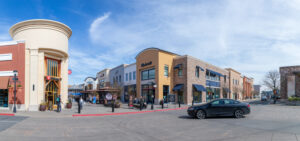Hilton’s Homewood Suites has been in operation for many years, providing extended stay opportunities for people who need to travel for work, medical care, or a long holiday. Even so, Hilton’s announcement that it would create a new line of extended-stay hotels is turning heads. The brand hasn’t been named yet but CEO Chris Nassetta has clarified that, unlike Homewood, it would be a lower-midscale brand designed to provide comfortable yet affordable temporary housing to people of all ages and walks of life. Rooms would be a cross between an apartment and a hotel room and would be specifically designed to meet the needs of people who have to travel for work purposes. Even so, the brand would likely also attract other potential customers, including people who need to travel for medical care, retirees from cold climates who are looking for a warm place to stay for the winter, and people on an extended holiday.
Hilton joins several other hospitality companies in paying closer attention to the extended stay market. Wyndham Hotels & Resorts, IHG, Marriott, and Hyatt have all created their own extended-stay brands in recent years. Even so, Hilton stands out because it appears to be going all-in on the extended stay market by creating two extended-stay brands to meet different consumer needs. It’s not hard to see why the brand is expanding its investment in this field, as recent data indicates that extended-stay services could see a net operating income to revenue ratio of up to 50%. What’s more, extended stay hotels tend to have a higher occupancy rate than regular hotels. In 2021, the average occupancy rate was 56% for regular hotels but 73% for extended stay hotels.
As extended stay facilities have minimal staffing and service needs along with few amenities, it is easier to keep the brand operating profitably even during economically challenging times. This would be particularly true for a lower-midscale brand that could appeal to cost-conscious consumers struggling to deal with inflation. A recent survey found that about 64% of consumers worldwide intend to cut spending due to inflation, so affordable extended-stay facilities should perform well in the current environment. The room rate is lower than it would be for a regular hotel and the on-site kitchenettes make it easy for people to save money by cooking their own meals. Extended-stay facilities also typically have laundry and mail services on-site, handy features that don’t cost much to provide but which significantly improve consumer convenience.
Hilton has yet to announce where it will construct its new extended-stay facilities, but the odds are they will perform well no matter where they are located. There were 460 million business travelers in 2022 alone, and this figure does not include other types of travelers who would be attracted to an extended-stay facility. There is clearly a market for temporary housing that is both affordable, reliable, and easy to rent. An extended-stay facility that can be booked online would make it easy for many people to find suitable accommodation in a new city and would be especially attractive if there were a rewards program to keep regular travelers coming back year after year. Furthermore, Hilton’s new brand would not compete with the company’s other brand offerings but would compete directly with AirBnB, a service that many consumers are ditching due to poor customer service, eccentric homeowners, lack of integrity, and other core problems. In short, it appears that Hilton and other hospitality service companies have identified a large niche audience in need of service and found a way to provide the needed service at a low cost and with a high profit potential.
Have questions?
Peak Commercial is committed to providing you with the latest and most up-to-date information affecting you and your commercial real estate investment portfolio. Contact one of our expert commercial real estate brokers or team members today to learn more.
(818) 836-6717



